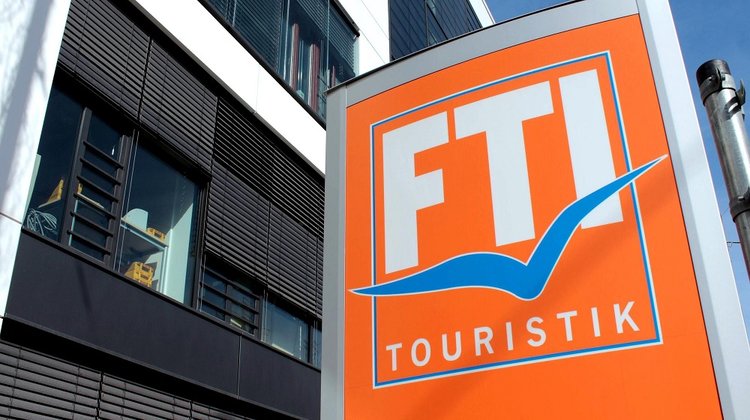Nine hundred tourists who booked with FTI are in Cyprus, Minister says
07:50 - 05 June 2024

Currently, 900 people who bought a travel package from the Germany-based FTI Group, that has filed for bankruptcy are in Cyprus, Deputy Minister of Tourism, Kostas Koumis has said.
Moreover, around 30,000 tourists who would have come to Cyprus through the FTI group are affected, he told CNA on 4 June. As a result, around 160 hotels and other businesses, such as transport services and travel agencies in Cyprus that have been working with the group, are also affected, tourism officials also told CNA.
"Today there are around 900 people who have arrived in our country through this tour operator", said the Deputy Minister, who is currently visiting London. "Our responsibility is to ensure that all those who have purchased packages from FTI continue their holidays unhindered and they are repatriated smoothly," he said, clarifying that there are 860 adults and 40 children affected.
Koumis told CNA that this is a negative development for Cyprus' tourism, "as it comes at a time when as a Deputy Ministry we were trying to strengthen the German market". He noted that the group was the third largest tour operator in Germany. "It was a group with great potential, since a lot of tourism companies invested in this cooperation. It is an unfortunate development," he said.
He said that the bankruptcy of FTI is expected to cause small losses in Cyprus, noting, however, that the damage to the hotel industry is greater, as "in addition to the other pressures it is under, it is also taking a hit, with some hotels looking like they may go unpaid" he said, adding that in some cases it appears that some hotels have already been paid.
"I would describe it as a 'loss of prospects'," he said, referring to the development, reiterating that the immediate impact for our country is small, and therefore there is no cause for great concern.
Director General of Cyprus Hotel Association, Philokypros Roussounides told CNA that FTI was a "giant group" in Germany and other German-speaking markets, which brought people to Cyprus, not only from Germany, but from Poland, Switzerland, Austria and the Netherlands, as well. "It seems that this year we expected to have around 30,000 tourists to our island (from this group), who would have stayed in 160 different hotels," he said.
He noted that the number may not sound large, but pointed out that the development is very important "because it adds to all the other challenges we face", referring to the war in Israel, the economic recession in Great Britain, the July 4 elections in Great Britain, the European Football Championship and the Olympic Games. "It is a year in which the country's tourism industry will be tested once more and we hope that it will once again show its resilience," he said.
For his part, the President of the Association of Cyprus Travel and Tourism Agents (ACTTA), Charis Papacharalambous, said that the development "is clearly negative for the industry" and any such development raises a concern.
However, he noted that "it is clear that the direct impact on the tourism industry will be small, at least in terms of customer arrivals.". The reason, he said, is that "our (arrivals') numbers from the German market, where this particular operator was mainly active, are small in comparison to other countries," pointing out, for example, that all German tourists to Cyprus amount to 200,000 annually. A second reason, he said, is that there are many tour operators in Germany.
Asked how the travel agencies in Cyprus that worked with FTI group were affected, he replied that the group had an office in Cyprus, which is more directly affected. Furthermore, he said that the group had other partners on the island, hotels, transport companies and other travel agencies working with them. "There is an issue there with amounts outstanding and that is where the biggest problem is, especially in terms of pending payments for services already provided," he said.
What will happen to the bookings?
Roussounides said that the reservations made by the group are cancelled. "There is an attempt in Germany by the other two major tour operators to cover part of these trips and have the Germans make the trips. This effort has not yet been successful. We are also waiting to find out," he said.
He noted that several hotels are exposed by tens of thousands of euros. Asked whether they intend to ask for state compensation, he said that "we do not intend to ask for any specific support", adding that the need is to give incentives and flexibility to businesses of the tourism industry.
Papacharalambous said, in turn, that he believed that the vast majority of the bookings have either already been transferred from third party partners, as some of the group's work was not direct to consumer but business to business. "So, in those cases the responsibility was on the vendors and arrangements have already been made", he said.
On the other hand, he added that for the direct sales of the FTI group to consumers from Germany, Switzerland, Austria, France, they "are clearly covered by the German Travel Security Fund, which exists for these cases."
Papacharalambous took the opportunity to point out that costumers should learn from such events. "When they buy from approved tour operators who have their insolvency coverages, they are clearly covered", he said, while, by contrast, when direct bookings are made and something goes wrong with one of the companies offering services in between, there is no legislation covering either the airlines or the hotels themselves.
(Source: CNA)

